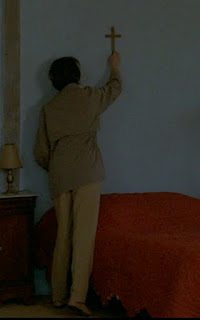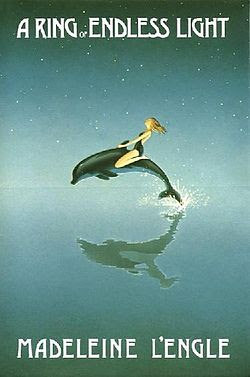Back in the 1990s we had a young woman working for us who one day opened up to me all about her relationship. Chloe was in her first long-term monogamous relationship in her life and she and her boyfriend had gone to the STD clinic together. Not because they thought they might have an STD but in order to establish they both didn't so they could stop using condoms.
The staff at the clinic had taken Chloe aside and attempted to dissuade her from this plan. They didn't, she told me, try this with her boyfriend. They worked on her on the basis of three assumptions: 1) that the plan to stop using condoms originated with her boyfriend, 2) that they had a right and duty to try and run her life, and, 3) as they tried to convince her, that she shouldn't trust him to remain faithful so she still needed protection. The first assumption was backwards. It was her idea. She'd only had sex with condoms and she hated the things. (Although it is not much publicized, there is research that indicates that the majority of women agree with her by the way.)
Anyway, when they couldn't dissuade her, the staff encouraged her to wait six months and come back with her boyfriend and get tested a second time before putting her plan into action because that was how long it could take for antibodies indicating the presence of HIV to form. Chloe said waiting was driving her crazy. She really, really wanted to stop using condoms. She hated the feel of them, she hated the smell of them, she hated the taste of them and she hated the antiseptic feeling they gave to love.
What I'd like to suggest is that Chloe lives in a world where vampire fiction makes perfect sense. Girls who grow up being "educated" to fear contact with a penis unless it is sheathed in latex are girls who are going to start having an odd compulsion for a love that can infect you such that you will have to remain with the person who infected you forever.
And this is even more subversive because the boomers and Gen Xers who had done this educating of young girls like to think of themselves as part of a permanent rebellion. "How you dare rebel against us, we're the
real rebels." Well, perhaps they rebel because you are a bunch on interfering busybodies who feel you have the right to run other people's lives for them. That's just a wild guess.
If it were up to the "educators", the Twilight series would not even have been nominated for the NPR poll of the best teen fiction. But even an expert panel couldn't very well exclude the series because it is so incredibly popular. More than 116 million copies were sold between 2005 and 2010. To help you put that in perspective, that is more copies than the Beatles sold in records between 1965 and 1970.
And NPR is the old persons network. If the poll had been held by by an institution more likely to attract youth participation, it would have rated much higher.
The central pleasure of any teen fiction worth reading is its sheer subversiveness. And in an era where the teaching profession is dominated by people who are politically liberal and sexually permissive, subversion is going to take forms such as vampire novels and traditional English schools disguised as schools for wizards.
Let's kill Mum and Dad
One thing you find over and over again in the best teen fiction is that Mum, Dad or both get dispatched with amazing efficiency. To take one of my favourites the TV series
Dawson's Creek had four principle characters:
Joey Potter's mother was dead of cancer and her father was in prison for drug trafficking,
Dawson Leery's parents were immature idiots who needed his guidance,
Jennifer Lindley had been sent away from her home to Cape Cod to live with her grandmother, and
Pacey Witter has distant, authoritarian parents who think he is a loser and pretty much have left him alone to bring himself up.
If you want to write teen fiction that kids actually like, as opposed to the stuff that librarians, teachers, and NPR listeners say they like, you want to get Mum and Dad offstage as quickly as possible.
Harry Potter's parents are murdered. Bella Swan's mother gets a new husband so she has to move hundreds of miles away to live with her father. Katniss leaves her home to participate in reality show fight to the death. And we find the same pattern in the classics. Huck Finn has no mother and runs away from his father. Anne Shirley is an orphan.
No one would really wish such a thing on themselves. No real orphan ever thought that being an orphan was romantic. Children really were kidnapped and taken to America in the seventeenth and eighteenth centuries and it was a brutal, horrible thing and yet millions of kids have read the Robert Louis Stevenson book
Kidnapped with great excitement. No kid wishes their parents dead and yet back cover note telling prospective readers that Harry Potter's parents will be murdered early in the story is a major selling point. Just as the vast majority of girls fantasize about being raped even though they would hate to have such a thing happen in real life, so too the vast majority of kids fantasize about being forced to get by without their parents. (The perennial popularity of British boarding school fiction derives to a large extent because it separates kids from parents.)
And just as fantasy rape gets girls aroused, the fantasy of living without loving and caring parents is fun. Major fun!
And this is where busybodies writing teen fiction make their biggest mistake. They take the removal of Mum and Dad as a dark, scary thing and assume that most teens want to read about dark scary things like cancer, suicide and drug overdose. There is a market for this stuff but it's not what most teen readers crave. Good teenfiction will have scary stuff in it but it's best to make it part of a fantasy that ends with a joyful romp.
(Go ahead and kill your character off if you want, by the way. Just don't imagine you are writing something that will comfort anyone who has a friend or relative in the cancer ward, or is there themselves. Death can be romantic so long as it is resolutely fictional.)
Lore, lore and more lore
Kids love lore. Anyone who has bashed their way through the middle books in the Harry Potter series will remember that Rowling sometimes piles on chapter after chapter where she seems to be doing nothing but showing off her knowledge of magical lore. In an adult book this would be a major flaw but it's a feature in a teen book. Kids love lore and you can find it by the bucket load in all the classics of the genre. Magic lore, superstitious lore, pirate lore, gang lore, historical lore ... it's all good.
And that shouldn't be a surprise. This fiction is aimed at people who haven't lived enough life to have inside knowledge of anything so they crave it.
Sometimes the lore is just hinted at. To really get Anne Shirley, you have to go find her favourite poems and read them yourself. And you have to to see the Lake of Shining Waters; the real thing is just a farmer's pond, you have to cross it with a sensibility trained by reading 19th century literature like Tennyson in order for it to become a lake. My family summered on Prince Edward Island in the 1970s and the place unfailing fills up with girls who have a deep need to visit all the places where Anne lived and went. You see this in adult fiction too, of course, but it's a compulsory in teen fiction.
Another point about these books is that a clear plot arc is only occasionally a good thing. It is often only the first part and last chapter of novel that has a clear plot arc. After that has been established, it is expected and even desirable that the story meanders and even gets entirely sidetracked. In a series, and it is telling that so much teen fiction gets turned into series, the later books usually merely recreate and amplify the atmosphere created by the first until the final book which most often simply replays the themes and plot from the first.
Conservative with a vengeance
One of life's genuine surprises is to actually see the movie
Rebel Without a Cause and discover that the hero's problem was that his father is cold and distant and he wishes he would spend more time with him. You'd never guess that without seeing because of the way the movie is typically described. However, subversive the starting premise seems, teens want a return to normalcy by the final chapter.
One of the things that you find over and over again in teen fiction is deeply conservative values. Katniss and Merida may both be good with weapons but they don't kill people with them. They achieve their goals by displaying traditional female virtue such as constancy and being nurturing. Families are torn apart to but in doing so the story usually ends up demonstrating the importance of family. Again, the absence of traditional marriage in most teen fiction just ends up affirming how important it is.

















